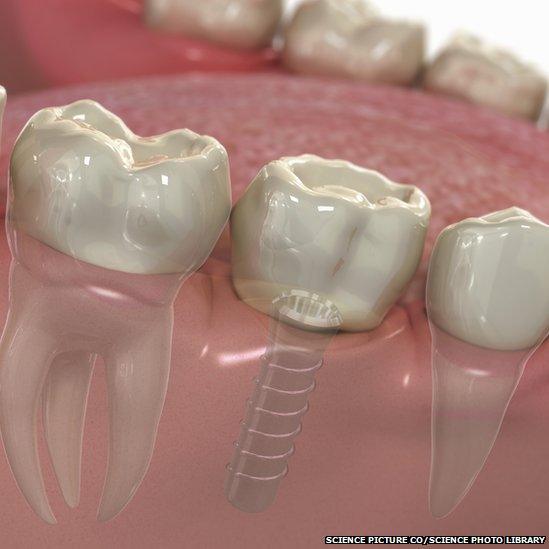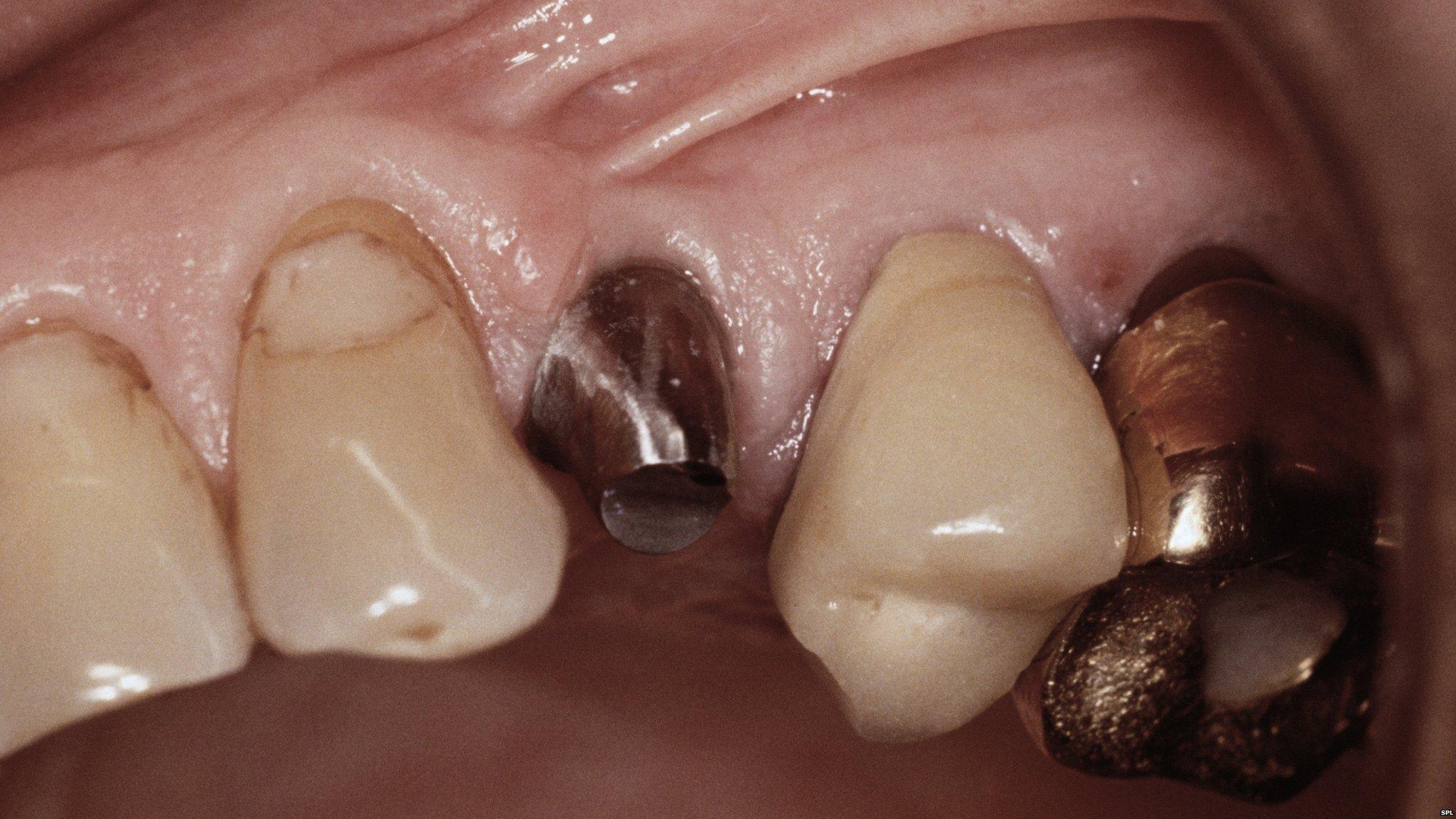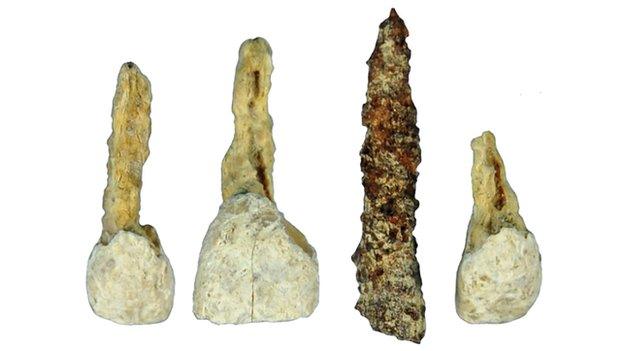Dentists warn of risks of not looking after implants
- Published

Kwok Law made sure he flossed and brushed his teeth regularly after being fitted with implants
When 34-year-old Kwok Law fell off his skateboard while hurtling down a hill, he could feel his front teeth breaking as his face hit the road.
He was patched up at A&E before being referred to a dentist at King's College Hospital, who recommended dental implants.
"I hadn't heard of them. I thought I'd end up wearing dentures for the rest of my life to replace the three front teeth I'd lost."
Instead, he had two screws drilled through his gum and into the jaw bone and, several months later, three replacement porcelain teeth were attached to them.
Two years on and Kwok is very happy with his new look and confident smile.
"They get better as time goes on. I can eat everything I want. They're fantastic and really sturdy."
But dental experts are warning that if implants are not looked after carefully, the story may not have such a happy ending.
Around 10,000 implant procedures are performed in the lower jaw each year in the UK, the majority in people over 65. Most procedures are carried out privately and can be expensive, costing around £1,000 per tooth.
Although implants are a growing industry, they are still far from being commonplace.
Dr Aws Alani, consultant in restorative dentistry at King's College Hospital, says implants have been a very successful innovation over the last 30 years. But he says patients are often not aware how to maintain them - and that can cause problems.

Experts are noticing more cases of peri-implantitis in patients with implants
He is seeing more cases of peri-implantitis, a bacterial infection around the implant that results in inflammation of the gums and, in the worst cases, can lead to bone loss in the jaw itself.
Dr Alani has written about his findings in the British Dental Journal, external.
"There is an attitude that implants are indestructible, but that's not the reality.
"The majority of cases are successful as long as patients are told how to care for their new teeth.
"Most importantly, we want them to quit smoking and improve their oral hygiene," Dr Alani says.
And, he adds, patients should go for regular check-ups.
Those at high risk of developing gum disease are those who don't clean their teeth regularly, smokers and patients who already have gum disease.
If an infection is allowed to take hold around an implant inserted in the gum, the jaw bone around the implant can also become affected and begin to waste away.
Over time, this can reduce support for the implant.


What is a dental implant?
It is inserted through the gum and into the jaw bone to support replacement teeth.
Implants are a substitute for a natural tooth root. They are made of titanium and are normally screw or cylinder-shaped.
Once in place, and after the gum has healed, an internal screw or post is placed into the implant.
This allows false teeth, crowns and dentures to be fitted.

Draegon Ismael, 40, originally from Tennessee, knows how it feels to have peri-implantitis.
He had implants inserted in 2007 in the US, several years after a serious car accident knocked out a number of his upper and lower teeth.
Now living in London, he has serious problems with his implants which he puts down to the fact that too many of his own teeth were removed at the time.
He also admits to not paying enough attention to the cleanliness of his teeth.
"They didn't tell me the best way to take care of them. I didn't know I had to go for cleanings.
"I thought implants were going to be a fix-all but they filed down too much bone and now the implants are starting to show through.
"Sooner or later they are going to fall out."
He regularly gets painful infections in his gums and he says his teeth have begun to separate.
Draegon was seen at King's College Hospital because of the acute nature of his problem, but his long-term treatment will need to be managed by a private dentist.
This is true for any patient who has had implants fitted abroad.
His options are limited because of the amount of jaw bone he has lost and this has left him feeling very stressed.
"I am a positive person, but at the moment, I wish I'd never gone ahead with the treatment," he says.
"People need to do a lot more research about them, and understand the risks. That includes knowing that, however good implants are, they are likely to fail at some point."
The message, according to Philip Friel, from the Association of Dental Implantology, is very simple.

Kwok says he was given strict instructions on how to look after his dental implants
Implants are no different from natural teeth and roots. They must be kept clean and maintained regularly.
"If you see any inflammation of the gums or any deterioration of the implant, then tell your dentist.
"It can be resolved, but if it isn't identified, it can progress and lead to bone loss - and that's permanent."
Kwok Law knows exactly what he needs to do to make sure his implants last a long time.
He was told to brush his teeth at least twice a day, floss regularly and use mouthwash - something he has adhered to.
"When brushing, you're only cleaning the surface of the teeth, but the problems come around the gums."
"Gum disease is the worst thing that could happen for me now."
- Published8 June 2012

- Published28 May 2014
